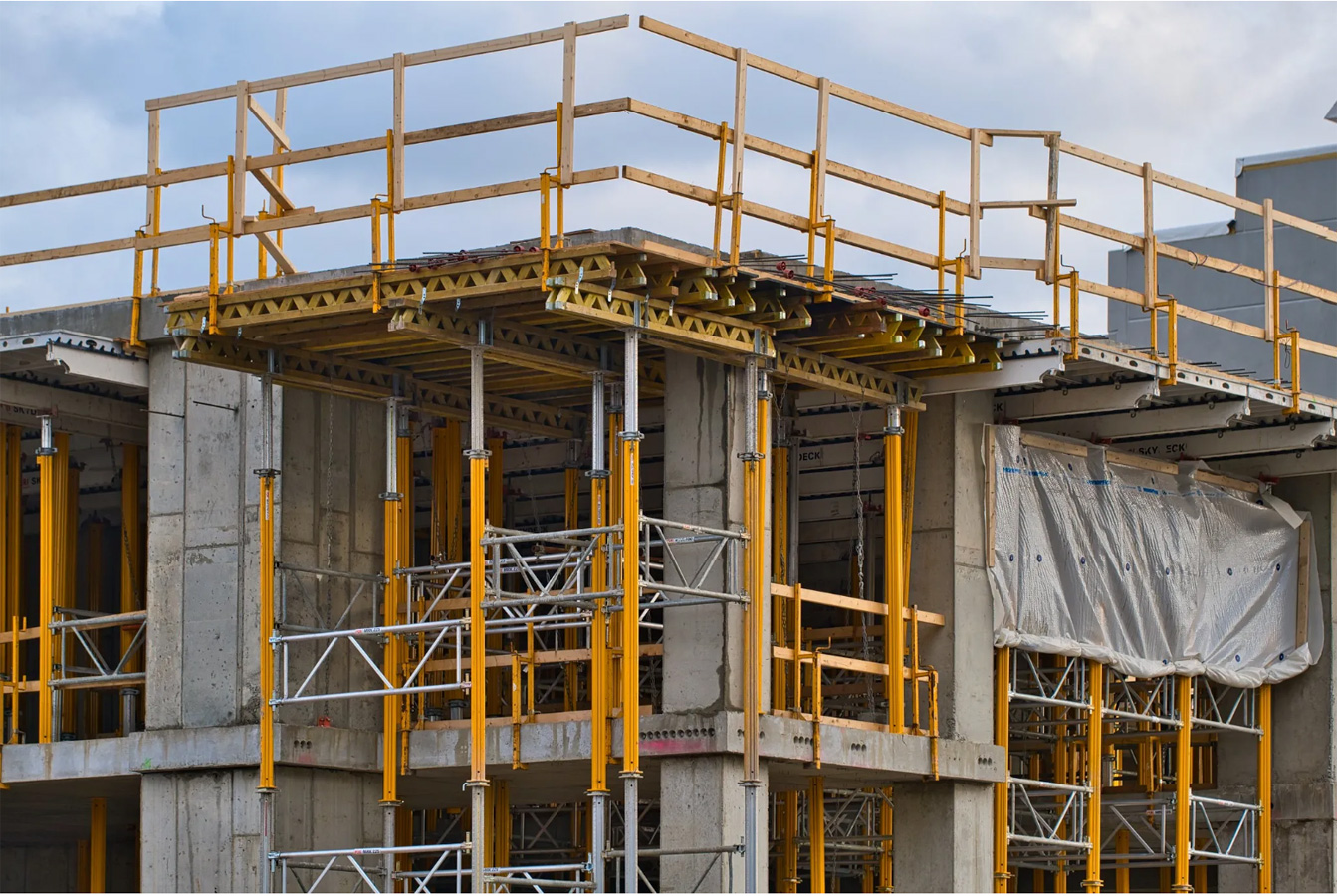Politics
Connecticut Senate Votes on Housing Bill Amid Wage Theft Protests

The Connecticut Senate convened on March 15, 2024, to address a significant housing bill aimed at increasing affordable housing stock. Outside the Legislative Office Building in Hartford, members of Carpenters Local 326 expressed their concerns over wage theft practices that they argue undermine the state’s efforts to achieve affordable housing goals.
Holding banners from various job sites where the Department of Labor has issued stop-work orders due to payroll violations, unpaid wages, and worker misclassification, union members delivered a clear message to lawmakers: affordable housing cannot be built on the backs of exploited labor. “This is happening in all four corners of the state,” stated Miguel Fuentes, president of Local 326 and representative for the North Atlantic States Regional Council of Carpenters.
Fuentes highlighted the issue of out-of-state developers profiting from community redevelopment funds while neglecting fair labor practices. He explained, “They decide they’re going to build these projects on the cheap and not pay workers’ time, not pay unemployment, not pay workers’ comp, and not pay wages.” The protests coincided with a special session of the Senate aimed at advancing a housing package that seeks to expand rental properties through zoning incentives, streamlined permitting, and new development subsidies.
While the Connecticut House approved the bill just a day prior, it notably lacks provisions addressing wage theft and labor misclassification—issues unions believe are crucial for maintaining affordability in future housing projects. “Wage theft and misclassification have surged over the past two decades, particularly on publicly supported housing projects,” Fuentes remarked.
Recent enforcement actions illustrate the pattern of wage theft affecting Connecticut workers. In East Hartford, three principals of ITO Construction and Hotel Renovation Solutions faced arrest after investigations revealed they had paid workers in cash and misclassified them on a project for the Fairfield Marriott. In a separate incident in Meriden, subcontractors for A.R. Building Company received eight stop-work orders after failing to pay 50 workers over nearly two months, resulting in approximately $150,000 in unpaid wages.
Further investigations have led to work stoppages at several sites, including Spinnaker Real Estate’s 34 Fair Street development in New Haven, where misclassification of employees was reported, and in Bridgeport and Hartford, where payroll and insurance violations were cited at major redevelopment projects.
Fuentes emphasized the broader implications of wage theft, stating, “These are real jobs, real violations, and taxpayers end up footing the bill.” A recent advisory from the U.S. Treasury’s Financial Crimes Enforcement Network identified the construction industry as high-risk for issues such as money laundering and tax fraud. The vulnerability of construction workers is evident, with a study from the UC Berkeley Labor Center indicating that 39% of construction-worker families in Connecticut rely on public assistance.
The issue of misclassification not only affects workers directly but also has a significant financial impact, draining thousands of dollars in lost payroll taxes per worker. Nationally, it is estimated that between 1.1 and 2.1 million construction workers are misclassified or paid off the books each year, leading to over $12 billion in stolen wages and up to $10 billion in lost tax revenue.
Union leaders have advocated for stronger enforcement measures for three legislative sessions, gaining some traction among lawmakers. Earlier this year, Comptroller Sean Scanlon supported a bill allowing his office to withhold payments from state contractors found violating wage laws. Following a 2024 audit that uncovered nearly 1,000 wage-theft complaints stalled at the Department of Labor, the Senate passed this measure. Unfortunately, it failed to gain House approval before the end of the 2025 session.
“If there is a company that’s shortchanging workers, we’re gonna shortchange them,” Scanlon reportedly stated during discussions. Union leaders are also advocating for contractor-liability legislation, which has already been implemented in ten states. This proposed law would hold general contractors accountable for wage theft committed by subcontractors, particularly on private projects with at least 15 units, allowing a 30-day window for correcting violations without imposing penalties on municipalities.
Fuentes concluded by reinforcing the need for equitable labor practices in order to achieve genuine affordability in housing. “Connecticut workers should earn enough to live in the homes they build. Do it right, and we fix problems. Do it wrong, and we multiply them.” The ongoing dialogue surrounding this housing bill highlights the critical intersection of labor rights and affordable housing in Connecticut’s future.
-

 Politics3 weeks ago
Politics3 weeks agoHamas Chief Stresses Disarmament Tied to Occupation’s End
-

 Science2 weeks ago
Science2 weeks agoOhio State Study Uncovers Brain Connectivity and Function Links
-

 Entertainment2 weeks ago
Entertainment2 weeks agoMegan Thee Stallion Exposes Alleged Online Attack by Bots
-

 Science4 weeks ago
Science4 weeks agoResearchers Challenge 200-Year-Old Physics Principle with Atomic Engines
-

 Entertainment2 weeks ago
Entertainment2 weeks agoPaloma Elsesser Shines at LA Event with Iconic Slicked-Back Bun
-

 World2 weeks ago
World2 weeks agoFDA Unveils Plan to Cut Drug Prices and Boost Biosimilars
-

 Top Stories3 weeks ago
Top Stories3 weeks agoFederal Agents Detain Driver in Addison; Protests Erupt Immediately
-

 Business2 weeks ago
Business2 weeks agoMotley Fool Wealth Management Reduces Medtronic Holdings by 14.7%
-

 Business2 weeks ago
Business2 weeks agoHome Depot Slashes Prices on Halloween Favorites Up to 75%
-

 Top Stories3 weeks ago
Top Stories3 weeks agoOrioles Hire Craig Albernaz as New Manager Amid Rebuild
-

 Entertainment2 weeks ago
Entertainment2 weeks agoBeloved Artist and Community Leader Gloria Rosencrants Passes Away
-

 Entertainment3 weeks ago
Entertainment3 weeks agoSyracuse Stage Delivers Lively Adaptation of ‘The 39 Steps’








